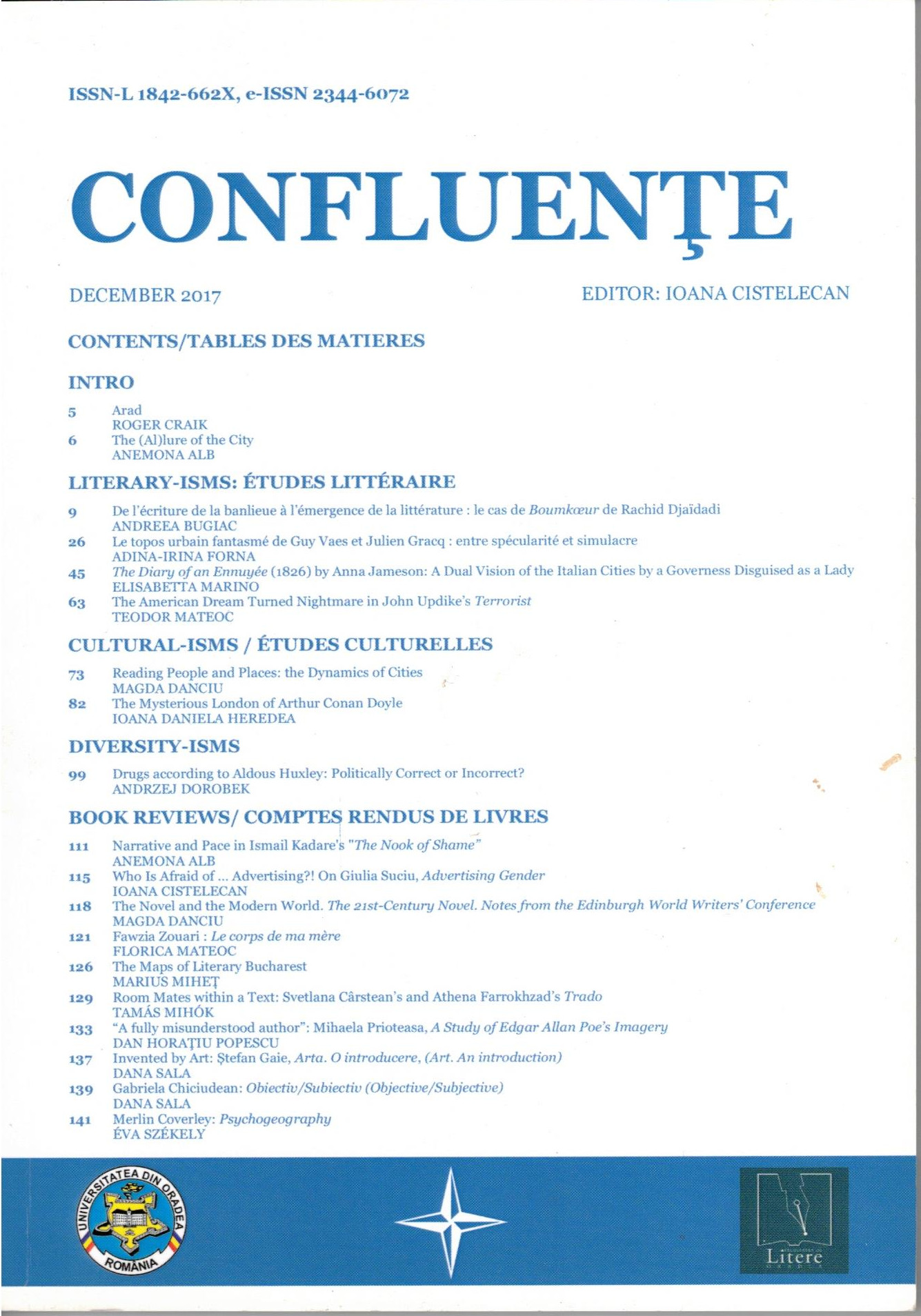Call for Papers
Confluențe. Texts and Contexts Reloaded
Autofictions and Mutations: Crises of the Self, Crises of the World
For issue 2025
Autofiction, a term coined by Serge Doubrovsky in the 1970s, blends elements of autobiography and fiction, challenging the boundaries of both genres. It has become a key concept in literary studies, unsettling traditional notions of authorship, identity, and narrative truth. It was initially debated within French literary circles as a response to Philippe Lejeune’s "autobiographical pact" (1975), which assumes a truthful connection between the author, narrator, and protagonist. Doubrovsky’s Fils (1977) directly challenged this pact, presenting a fragmented, self-reflexive narrative that acknowledges the instability of memory and identity, revealing the self as something fluid rather than fixed.
In both Francophone and Anglophone literary studies, the term "autofiction" has been surrounded by numerous controversies, and has yet to reach a critical consensus regarding its conceptualization. Some critics and literary traditions have leaned toward the broader interpretation that autofiction describes any novel with autobiographical elements. In Autofiction: Une aventure du langage (2008), Gasparini notes that autofiction is difficult to define and has become an umbrella term for autobiographical novels with fictional elements. On the other hand, there are other scholars who apply more restrictive definitions arguing whether it is a narrative modality, not just any autobiographical novel (Alex Hughes, 2002), a distinct literary genre, a sub-genre of autobiography, or simply a narrative strategy (Effe & Lawlor, 2024).
While autofiction encompasses all these aspects and more, its establishment in the critical vocabulary has made it increasingly multifaceted and complex. By positioning autofiction within the frameworks of post-structuralism, deconstruction, intertextuality, and postmodernism, scholars have highlighted its complex relationship with genre conventions and reader expectations. As boundaries between reality and fiction blur, autofiction disrupts traditional literary categorizations, prompting discussions about the ethics of self-representation and the evolving role of the author. This fluidity allows writers to experiment with narrative form, creating texts that resist fixed interpretations and demand readers to actively engage with the text.
This fluidity in autofiction not only challenges traditional narrative forms but also mirrors the instability of the self it seeks to represent. It portrays the self not as a stable entity, but as something constantly reshaped by memory, language, and narrative. Aligning with postmodern concerns about the fractured nature of identity in an era of shifting cultural, technological, and psychological landscapes, autofiction comes to embody a crisis of the self. The act of self-writing turns into an act of self-questioning that mirrors broader philosophical anxieties about subjectivity, memory, and the reliability of personal experience.
The tension between truth and fictionality is no longer solely linked to personal identity, as it engages with wider social and political crises. In an era characterized by disinformation, shifting national identities, and cultural turmoil, autofiction reflects a post-truth condition, where subjective experiences hold equal significance to objective facts. The emergence of this genre coincides with global transformations—from the decline of grand narratives to the rise of digital self-curation, where personal stories are continually updated and showcased.
The 2025 issue of Confluențe. Texts and Contexts Reloaded seeks to further these discussions by exploring autofiction as a response to crises—both personal and global. We invite interdisciplinary contributions that examine how personal narratives (autofictions) reflect and respond to broader societal crises, emphasizing the interplay between individual identity and collective experiences.
Contributions may focus on, but are not limited to:
- autofiction as a narrative form, investigating how autofiction blurs the lines between reality and fiction, allowing writers to navigate personal crises while reflecting societal issues.
- identity and crisis, exploring how self-writing self can be used to articulate personal and collective crises, contributing to discussions on identity in contemporary contexts.
- narrative strategies, analyzing the rhetorical tools employed in autofiction to engage readers and provoke responses related to crisis.
- cultural contexts, comparing narrative techniques across different cultures, focusing on how they address crises of identity and existence.
- digital narratives, examining the impact of digital media on autofiction.
The articles may be written in English, French, and German. Instructions for authors can be found on the journal’s webpage:
https://litere.uoradea.ro/litere2022/index.php/cercetare-tt/publicatii/confluente?id=291
All submissions will undergo a double-blind peer-review process. Authors will receive evaluation reports detailing the outcome.
The deadline for submitting full articles, which should be between 5,000 and 7,000 words, is July 31st, 2025.
- The peer reviewing process: between August 1st -October 15th
- Deadline for the submission of the final version of articles: November 10th
- Deadline for submission of book reviews: November 10th
- Uploading of the electronic version of Confluențe: December 20th
- Printed version of Confluențe: January 30th
The submission proposals and full articles should be emailed to
This email address is being protected from spambots. You need JavaScript enabled to view it.
Suggested Bibliography:
- Colonna, V. (2004). Autofiction & autres mythomanies littéraires. Editions Tristam.
- Doubrovsky, S. (1977). Fils. Galilée.
- Effe, A., & Lawlor, H. (2024). Rethinking autofiction as a global practice: Trajectories of anglophone criticism from 2000 to 2020. A/b: Auto/Biography Studies, 1–33.
- Effe, A., & Lawlor, H. (Eds.). (2021). The autofictional: Approaches, affordances, forms. Palgrave Macmillan.
- Gasparini, P. (2008). Autofiction, une aventure du langage. Seuil.
- Gibbons, A. (2017). Contemporary autofiction and metamodern affect. In R. van den Akker, A. Gibbons, & T. Vermeulen (Eds.), Metamodernism: Historicity, affect, and depth after postmodernism (pp. 117–130). Rowman & Littlefield.
- Gilmore, L. (2001). The limits of autobiography. Cornell University Press.
- Lejeune, P. (1975). Le pacte autobiographique. Seuil.
- Shands, K., et al. (Eds.). (2015). Writing the self: Essays on autobiography and autofiction. Södertörns Högskola.


